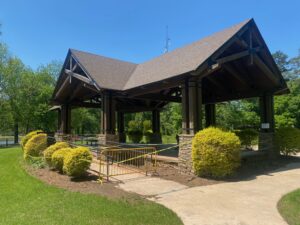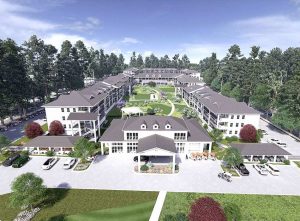Peachtree City Mayor Don Haddix last week complained that there are no regional transportation projects that would benefit Fayette County should voters in metro Atlanta approve a regional one-percent transportation tax in 2012.
The region, however, hasn’t even gotten to the point where transportation projects are being considered for the list that will be brought forth to voters in the region-wide referendum, state officials said this week.
It is the responsibility of Mayor Don Haddix and County Commission Chairman Jack Smith to bring forward some project ideas that would benefit Fayette County, DOT officials said. And potential projects are already being accepted for consideration, though they won’t be formally considered until sometime next year.
“People are sending us projects and obviously we have tons of projects already on the books,” said Jill Goldberg of the Georgia Department of Transportation.
Preliminary estimates are that a regional transportation sales tax would raise $30.7 million in Fayette County, while the county will get back 15 percent of that figure, or $4.6 million, split up among the cities and the unincorporated county to spend as local governments see fit on various non-regional transportation projects.
The remaining $26.1 million — or 85 percent — would be sent away for regional projects, some of which might include Fayette County.
The legislation creating the regional transportation sales tax option as a referendum requires that the vote be tallied on a regional basis. That means that even if Fayette voters shoot down the tax, the tax will be assessed in Fayette if voters in the region collectively approve the tax.
Haddix contends that the “outer loop” project to create another road network outside of Interstate 285 is still on the drawing board and could eat up a large chunk of the tax funds collected in Fayette County. Moreover, he says, the maps show part of the outer loop cutting through Fayette County.
Both Haddix and Smith, who next year will be replaced by his successor as commission chairman, are members of the 21-member roundtable group that will ultimately approve of the total list of regionwide projects that will be placed before voters for consideration in the 2012 July primary.
Haddix, Smith and Smith’s successor will have to convince their fellow members of that regional transportation roundtable group of the necessity of Fayette’s regional transportation projects to be included in the regional funding, Goldberg said.
There is not a requirement that projects must straddle two counties in order to qualify for regional transportation funding, Goldberg said. That is contrary to an assertion by Haddix that such a requirement exists.
“Road projects have to cross county lines and have to go through more than one county to qualify,” Haddix said Monday. “We have no such projects. There are no such projects being proposed.”
Furthermore, Haddix said, according to state data there are no “congestion points” in Fayette County, although one making the list that significantly affects Fayette commuters is the interchange of Ga. Highway 74 and Interstate 85 just across the Fayette-south Fulton county line in Fairburn.
Fayette County is allowed to propose projects for regional funding even if they would improve traffic between here and Coweta County, even though Coweta County is not a part of the metro Atlanta region, Goldberg said.
Haddix has argued that such projects would not be eligible for funding via the metro Atlanta regional transportation sales tax since Coweta County is part of the Three Rivers Regional Commission, which comprises mostly rural counties south of Atlanta, including Spalding and Pike counties.
Haddix is leading an effort for Fayette County to switch from the Atlanta Regional Commission to the Three Rivers commission. Such a move will require a vote from the Peachtree City Council, the Fayette County Board of Commissioners and also approval from the Georgia legislature through local legislation.
Haddix contends that the regional transportation tax would be approved by metro Atlanta counties and the end result would be that Fayette County’s share of the tax would be used to fund projects everywhere else in Atlanta with little direct benefit to Fayette County.
Lending credence to that possibility is a potential lack of already-programmed DOT projects in Fayette County. To qualify for the regional sales tax funding, DOT wants the projects to be already underway in some manner such as right of way acquisition, engineering or environmental studies, said DOT’s Goldberg.
While there may or may not be any major pending road projects in Fayette County from the Department of Transportation’s perspective, Fayette and Peachtree City specifically in the past five years has benefitted from the road widening of Ga. Highway 54 West in Peachtree City from Hwy. 74 to the Fayette-Coweta line, and also the widening of Hwy. 74 from Hwy. 54 southward to Cooper Circle. A second phase of the Hwy. 74 widening will extend from Cooper Circle to Ga. Highway 85 and is expected to be completed next year.










Leave a Comment
You must be logged in to post a comment.